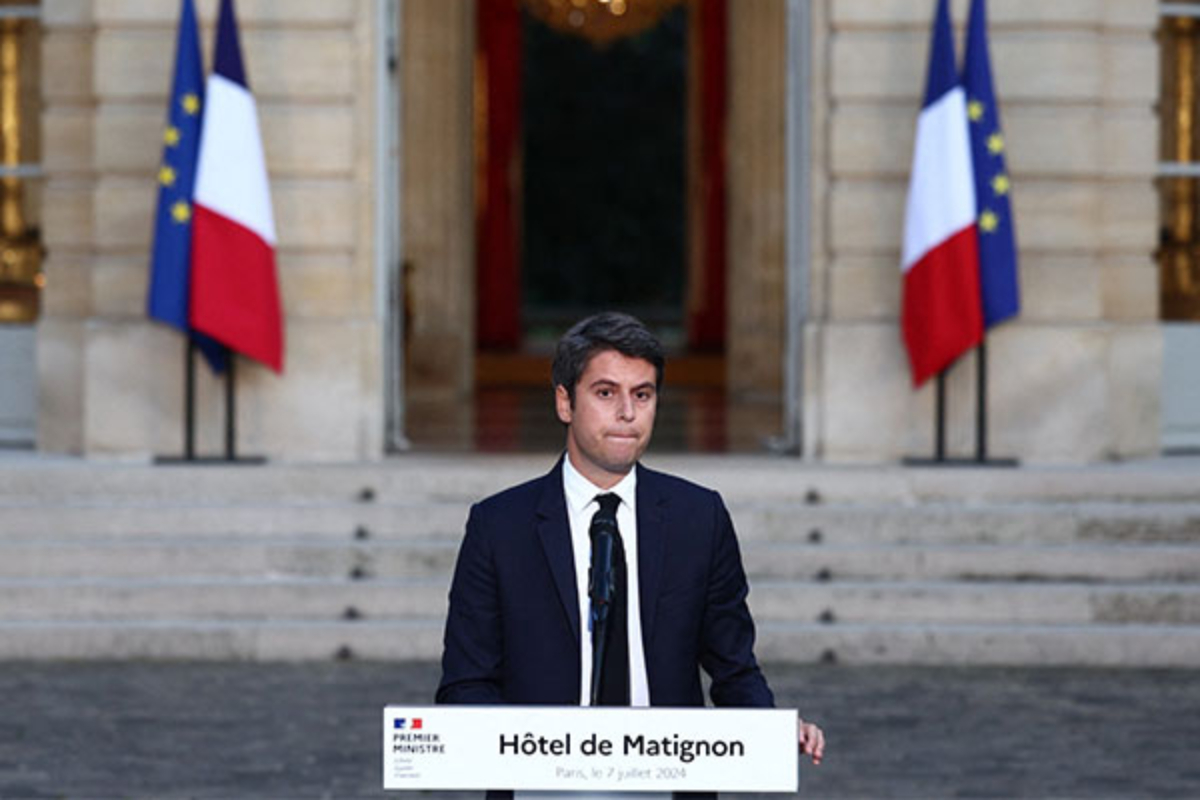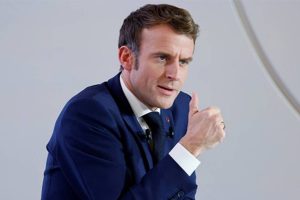French Prime Minister Gabriel Attal announced his resignation on Monday, affirming his commitment to continue fulfilling his duties until a successor is appointed, citing the imminent Paris Olympics as a critical obligation, France 24 reported.
Initial projections from Sunday’s vote indicated that the NFP had secured a plurality but fell short of an absolute majority, leaving Macron’s ruling party trailing in second place and the right-wing National Rally in third.
Attal, however, said that, if his resignation is refused, he was ready to remain in office “as long as duty demands” given that the Paris Olympics are due to begin on July 26, according to France 24.
“Since the beginning of this campaign, I have alerted against three risks: the one of an absolute majority of the [left-wing] France Insoumise party, the risk of an absolute majority of the National Rally, the risk of the disappearance of the movement that embodies our values and principle,” the French PM also said in his resignation speech.
“Those three risks have been completely marginalised by the French people,” he added.
“Tonight there is no absolute majority that will be led by the far right. I believe in this French spirit that is deeply rooted and committed to the spirit of the Republic,” Attal said, adding, “Being the Prime Minister was the honour of my life.”
The election results marked a significant shift in French politics, with the National Rally, led by Jordan Bardella, claiming substantial gains despite initial high expectations. He criticised Macron for purportedly “pushing France into uncertainty and instability” and expressed disappointment at falling short of projected outcomes despite an increase in parliamentary seats.
The NFP’s unexpected triumph was met with jubilation among its supporters. Socialist leader Olivier Faure emphasised the coalition’s mandate, pledging to repeal Macron’s contentious pension reforms and unify under the NFP’s agenda. “We will have just one compass: the programme of the New Popular Front,” Faure asserted confidently.
Donald Tusk, Polish Prime Minister, echoed sentiments of satisfaction following the electoral outcome, suggesting implications beyond French borders. “In Paris enthusiasm, in Moscow disappointment, in Kyiv relief. Enough to be happy in Warsaw,” Tusk said in a post on X.
The electoral process was marked by strategic withdrawals among candidates from various parties, aiming to consolidate votes against National Rally contenders in the run-off. This tactical manoeuvring underscored the high stakes of the election, aiming to prevent a sweeping victory by the far-right party, as reported by France 24.
Public reactions were diverse and impassioned. In Paris, crowds gathered at the Place de la Republique, chanting slogans against fascism in response to the election results. The atmosphere reflected both celebration among leftist supporters and concern over the implications of a hung parliament for French governance.
Macron’s decision to dissolve parliament and call for snap elections followed a defeat in the European Parliament elections by the National Rally. The subsequent formation of the NFP, uniting disparate leftist factions, emerged as a strategic response to the changing political landscape and a bid to consolidate support against right-wing advances.
The implications of the election outcome extend beyond domestic politics, potentially impacting European solidarity, diplomatic relations, and economic stability within the EU. Analysts foresee a period of uncertainty as France navigates a divided parliament and recalibrates its policy direction under the new political dynamics.
The election results will have ramifications for European backing of Ukraine’s defence, global diplomatic relations, and the economic stability of the EU.
Additionally, they could potentially diminish Macron’s influence for the remainder of his presidential term.
Initial projections were released at 8 PM Paris time (1800 GMT), with official results anticipated to be announced between late Sunday and Monday, France 24 reported.



